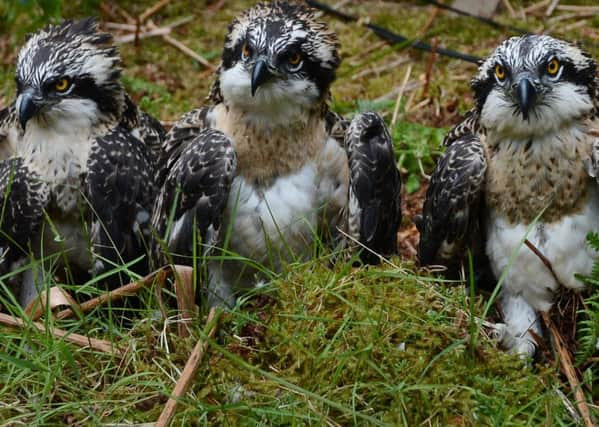More protection, not less, is needed for birds


On some occasions when I get into work I learn of a decision or ruling that makes it all worth while. One such was when I learned of the Scottish Government’s clear and resounding statement that they do not wish to renegotiate the European Union Nature Directives – the legislation that, for the last 30 years, has helped to establish protected areas for wildlife known as Natura 2000 sites.
This is the foundation stone that has been responsible for the designation and protection of so many of our rarest and most precious habitats – from the stunning ancient Caledonian pine forests in the Cairngorms and our world famous salmon rivers, such as the Tweed and Spey, to the seabird “cities” of Orkney and Shetland that hold globally important populations of birds. But, alarmingly, these are currently being considered for review by the European Commission, and are under threat of being weakened or watered down in some “red-tape-slashing” zeal.
Advertisement
Hide AdAdvertisement
Hide AdThe Scottish Government, with this welcome statement, now join the UK and Welsh governments, which made similar announcements in December 2015, leaving only Northern Ireland to pledge their support in the UK.
This comes after nine environment ministers wrote to EC vice-president Frans Timmermans and commissioner for environment, maritime affairs and fisheries Karmenu Vella calling for the Birds and Habitats Directives to be protected. They were later joined by other EU member states.
In his written statement to the House of Commons at the start of January, UK environment minister Rory Stewart made it clear that Westminster was not only aiming to retain the directives in their current form, but also “looking for much better approaches to implementation”. We hope Scotland will adopt this approach soon, too.
In a statement last week the minister for environment, climate change and land reform, Aileen McLeod MSP, said: “Scotland provides the largest component of the UK’s contribution to the European Union’s Natura 2000 network.”
Scotland in turn is in receipt of more Life Nature Funding per head of population than any other UK country. The current network helps protect and invest in iconic Scottish species and habitats including golden eagles and peatlands – but there is a chance for them to do much, much more.
Urgent action is needed to complete the designation of the Natura 2000 network in Scotland. On land, the Natura network is nearly complete, although site designation for a number of species still needs action – and we have been waiting rather a long time for this. At sea, however, there are major gaps in the network.
Almost 37 years after the Birds Directive was adopted, the necessary network of marine Special Protection Areas remains full of holes and is not offering much protection at all. While the most important seabird breeding colonies on land are protected, there are no SPAs to protect the feeding areas of any of Scotland’s internationally important breeding seabirds.
Problems have arisen in Scotland due to the failure of successive governments to support adequate research, leading to delays in the classification of protected areas (particularly in the marine environment). In order to address these major data gaps, improved data collection, alongside a clearer definition of favourable conservation status for protected species, could not only better guide conservation action, but would also aid the development/planning process by helping to inform the proper assessment of development proposals, such as offshore wind farms.
Advertisement
Hide AdAdvertisement
Hide AdIn her opening speech to the World Forum on Natural Capital in November 2015, Nicola Sturgeon said: “The Scottish Government is determined, first and foremost, to lead by example, by measuring and enhancing our own natural capital.” We look forward to working with the Scottish Government so that wildlife, people and businesses prosper.
• Stuart Housden is director of RSPB Scotland
SEE ALSO